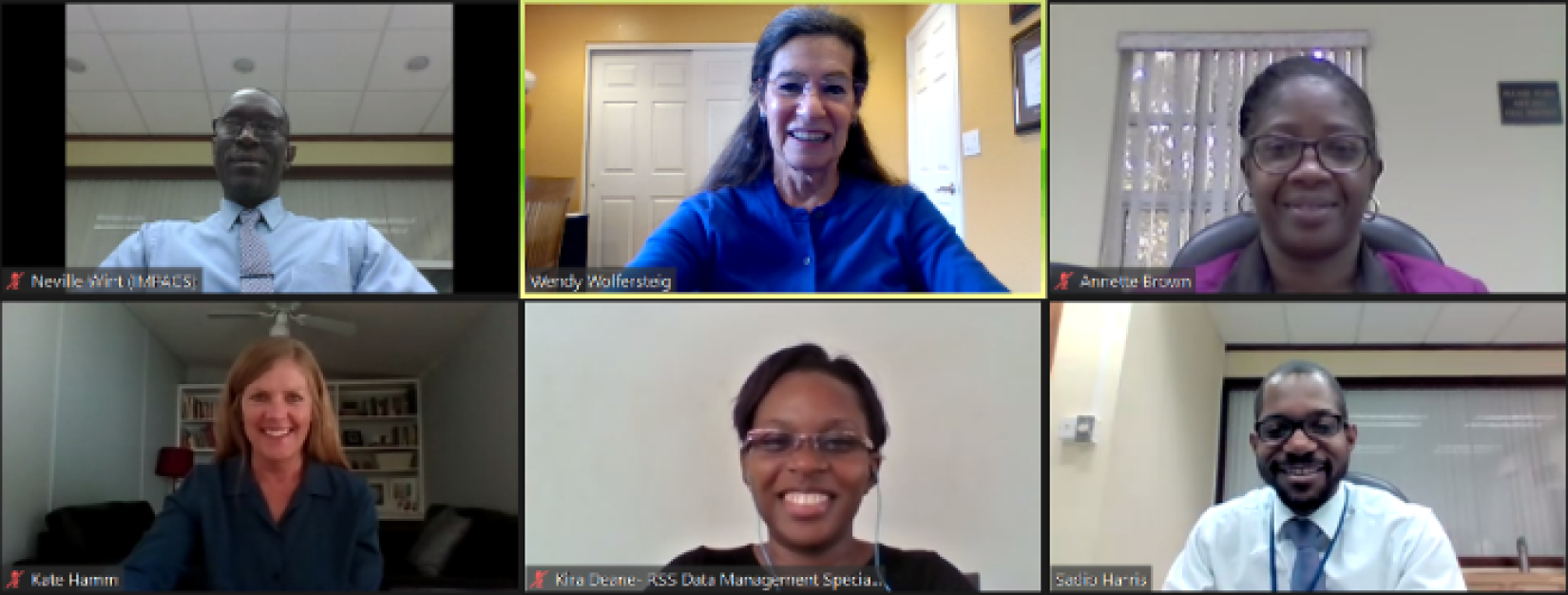CariSECURE continues to champion citizen security despite COVID-19
01 February 2021
- The Caribbean, a place of idyllic beaches and lush landscapes is generally not associated with digital connectivity – but as evidenced by the COVID-19 pandemic, if the region is to build forward better it must fully embrace the digital world.

Pre-COVID-19, the Strengthening Evidence Based Decision Making for Citizen Security in the Caribbean (CariSECURE) project, a five-year initiative funded by the United States Agency for International Development (USAID) and implemented in partnership with the United Nations Development Programme (UNDP) Barbados and the Eastern Caribbean was launched. This project was designed to understand, analyse and enhance crime prevention through data. CariSECURE has led six islands in Caribbean towards digitization and data-driven decision making in citizen security. While the project’s mission has stayed true, its method of achieving this aspiring goal has evolved in a post COVID-19 world.
COVID-19 reached the Caribbean in 2020, and disrupted both access to justice and the lives of those already in the criminal justice system — exacerbating the remoteness of vulnerable populations and compromising the safety of those in detention centers. The need for digital solutions has exponentially increased and thus CariSECURE’s focus on digital transformation could not be more relevant than at this time. By employing adaptive and agile methodologies the project team were able to reposition their training, stakeholder meetings and overall communication to thrive in the new virtual environment and accelerate progress towards improving access to justice, given the restrictions of the pandemic.
The CariSECURE project had made notable progress! In 2020, Antigua and Barbuda, Barbados, Grenada, the Republic of Guyana, St. Kitts and Nevis, St. Vincent and the Grenadines, and the Republic of Suriname have rolled out the Police Information Form (PIF) with 42 police stations across the region joining the ranks. Additionally, crime analysis training was conducted virtually for a cohort of 28 regional trainees; three webinars were held targeting police leadership and highlighting the skills of trained analysts, all culminating in the project’s first virtual graduation. On the heels of this, an ongoing Train the Trainer workshop is being delivered virtually to boost the capacity of the Regional Security System (RSS) and the CARICOM Implementation Agency for Crime and Security (IMPACS) to sustain crime analysis training beyond the life of the project. With participants noting the successes of the sessions with comments ranging from, “It assisted in building my confidence,” to “This sets the bar,” and post training surveys with success rates nearing 100 percent, the CariSECURE team has overcome many obstacles to achieve its goals.
Across the region Small Island Developing States are rising up to improve the quality and efficiency of their justice systems through digital transformation to ensure that Sustainable Development Goal 16- Peace, Justice, and Strong Institutions- is realised, and CariSECURE is championing onward in 2021!
About the United States Agency for International Development (USAID)
The American people, through USAID, are partnering with the people of the Caribbean to move education, health, economic development, and prosperity forward, so they are able to have opportunities to better their lives and to promote stronger and safer communities. In the past five years alone, USAID has invested $650 million in the Caribbean region. Together, we can strengthen disaster resilience, make communities more vibrant and expand economic opportunities in the Caribbean. We are neighbors, partners, and friends.



